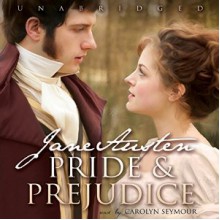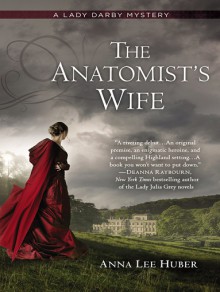



I freely admit that there isn’t anything special about the plot and story in Pride & Prejudice, but it’s just so well done that it’s still one of my favourites. Austen brings this ordinary story to life. There’s a liveliness and wit to her dialogue and characters that is hard to equal then or now.
This is, of course, going to count as my “Favorite re-read” square for the summer book bingo.

Lady Darby #1
The Anatomist’s Wife is a murder mystery that takes places around 1830. Lady Darby is a young widow with a scandalous past: she used to draw anatomical drawings for her husband and when it got out after his death she felt the full backlash from society (it wasn’t considered something proper for well-bred ladies to do, naturally). Although the attitudes felt genuine, some of the details still seemed a bit much. Anyway, disaster strikes when a lady is brutally murdered at Lady Darby’s sister’s houseparty, and popular opinion among the guests blames Lady Darby.
The murder was interesting and I liked Lady Darby, but some parts concerning the romantic interest fell a little flat for me. I guess I’ll have to see how things turn out in the following books.
I liked Gage, I liked the whole rakehell vs. rogue aspect, and I understand why he’d be attracted to Lady Darby, but I’m just not entirely sure why he seems to care about her. By his reputation, it’s not his style to fall for the girl. Of course, we never see things from his perspective, and we don’t really know his past.
The big ending reveal and confrontation also seemed like a bit of a setup and thus over the top. Hopefully it’s well utilized later on and the series doesn’t continue too much in this style (one that requires Lady Darby to act somewhat foolishly). And Lord Stratford had better not be back later on, or I’ll be most upset (if he does come back, please don’t tell me).
I also thought that some of the guests at the end (the Westlocks) showed incredible ill-breeding. I get the impression that although Lady Darby isn’t that important, her sister and her husband are. Perhaps I’m mistaken on this.
Overall, a solid start to a mystery series.

I wanted to read this 18th century publishing phenomenon because of History Bites, a slightly crazy show that liked to imagine what history would have been like if television had been around. It did an episode on Goethe where a bunch of impressionable youths were dressing up in Werther’s blue coat and yellow vest like kids today might dress up like Harry Potter (it aired back when Harry Potter was still relatively new and really popular). There was probably some other stuff in that episode but I don’t really remember it.
So I was curious, but as usual I didn’t get around to it for a while. And then because of the subject matter, I set it aside because I really didn’t need a depressing read at the time. It wasn’t quite as bad as I feared in that department, but I also didn’t have much sympathy for Werther beyond recognizing that he was really depressed and needed a lot more help than he got. I felt bad for him but I also didn’t really enjoy reading his letters. I probably would have had more sympathy if he hadn’t subscribed so strongly to the Romantic movement or what would develop into the Romantic movement.
I’m labelling it “A hard book” for the summer book bingo, partly due to the subject matter and partly because I found my mind wandering during several of Werther’s romantic effusions (in the sense of the romanticism of nature etc and not necessarily about Charlotte).
I did like these quotes:
The human race is a monotonous thing. Most people work most of the time in order to live, and the little freedom they have left over frightens them so, that they will do anything to get rid of it. Oh, the regimentation of mankind! (p12)
I could lead the best, the happiest life if I wasn’t a fool. (p49)
- Yep.
I still can't quite believe that Werther actually borrowed the pistol he shot himself with.